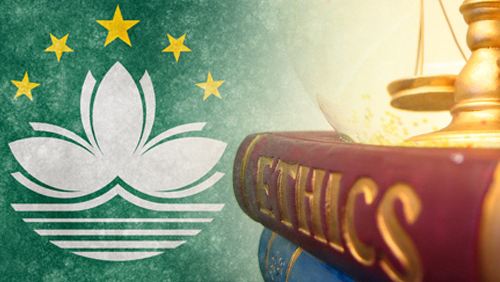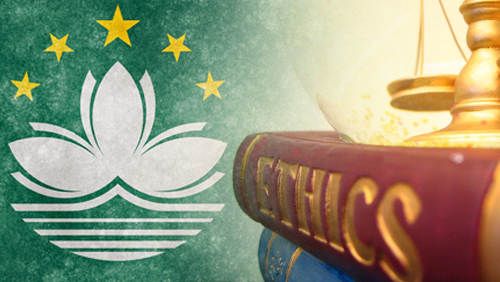 Authors of the book Gambling Law in Macau believed that while Macau’s gaming laws is up to date, regulations for junket operators needs a bit of upgrading.
Authors of the book Gambling Law in Macau believed that while Macau’s gaming laws is up to date, regulations for junket operators needs a bit of upgrading.
During the book launch, Fernando Vitória, one of the authors and legal adviser to the Macau Gaming Inspection and Coordination Bureau (DICJ), pointed that casino promoters, just like any other professionals, should work under an Ethic Code—a document drafted specifically for junket professionals that could also be approved by the government.
“The government could participate in its drafting, but should outline something for the junkets. All professions have an ethics code, which is equally or sometimes even more important that current legislation in force,” said Vitória.
Vitoria also stressed that another aspect that could be perfected relates to “how the law foresees access to funding sources that they need.”
“With an economic downturn, there’s a need to safeguard that aspect, ensuring that they’re not left without regular funding sources – for instance, access to the stock exchange,” Vitoria added.
Co-author Óscar Madureira, shares the same insight, stating that framework of such improvements should be thoroughly assessed to better regulate junket operators.
Macau is getting rocked by reports of a $258 million casino heist and recent reports says that the Judiciary Police has received complaints that Dore Entertainment and other parties have lost a total of HKD330 million ($43 million) as a result of the Dore junket employee theft, higher than what some analysts put the sum at.
About 30 investors have petitioned outside China’s liaison office in Macau on Wednesday, following failed efforts to initiate a dialogue with the Dore Entertainment over possible losses outside Wynn Macau casino.
Petitioners were accusing Wynn Resorts of collusion with Dore over the embezzlement despite Wynn’s statement dismissing any role in the case.
“They too are partners with the profits shared every quarter. Wynn Macau is even the biggest shareholder,” said one of the investors. “Many people here are locals, while others are our mainland compatriots. I hope the government can help us get back our hard-earned money.”
Alongside the petitioners was lawmaker Pereira Coutinho, who was also with the crowd for the Tuesday petition. Coutinho said that the incident showed DICJ’s inability to live up to its role in supervising the gaming industry, neglecting works to close loopholes and optimize its oversight.
